“Making something painful that doesn’t have to be is just plain wrong.” Dr. Baxter explains the connection between parent’s perceptions of their children’s safety & public health.
At TEDMED 2014, pediatrician and entrepreneur Amy Baxter challenges us to talk more openly about needle pain and how it can impact the health of our children.
People blow off needle fear but could we be losing a generation to antivaccine attitudes because of a failure of compassion? Real science and real solutions in an amazing interview.
Dr. Baxter practiced academic medicine over 20 years, completing fellowships in Child Abuse, Pediatric Emergency, and Clinical Research. She has authored multiple first author publications, textbook chapters, and continues to lecture nationally and internationally on pain management, this year in Qatar and Maastricht.
Relevant contributions to science include an algorithm to time liver injuries to within 6 hours using the natural log of hepatic enzyme decay, the validated pictorial nausea “BARF” scale now translated into 3 languages, cofounding the Society for Pediatric Sedation and publishing work facilitating the current standard of safe ED propofol use, and HHS testimony after publishing a 252% increase in needle fear.
She has spent the last 15 years learning more about both the neuromodulatory physiology of thermal and mechanical stimulation therapeutic effects, and the challenges working with the unexpected forces from the motors needed for a high frequency-low amplitude vibration device.
She is PI of two NIH fast-tracks for vibratory neuromodulation pain relief. Academic service includes 15+ NIH SRGs for NIDA, NINDS, and NICHD, and serving on the ACEP COVID Field Guide for emergency COVID management guidelines.
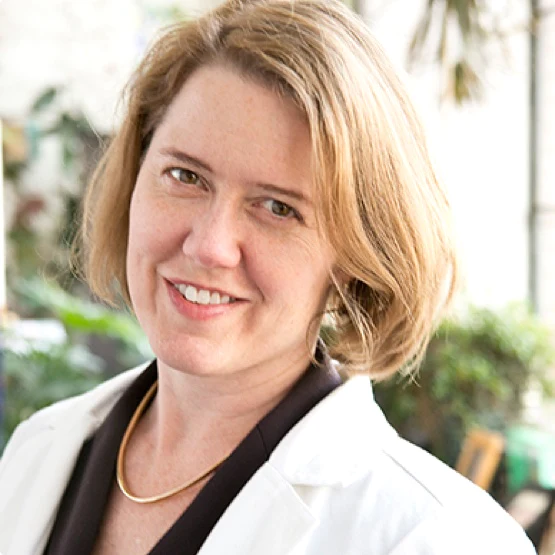
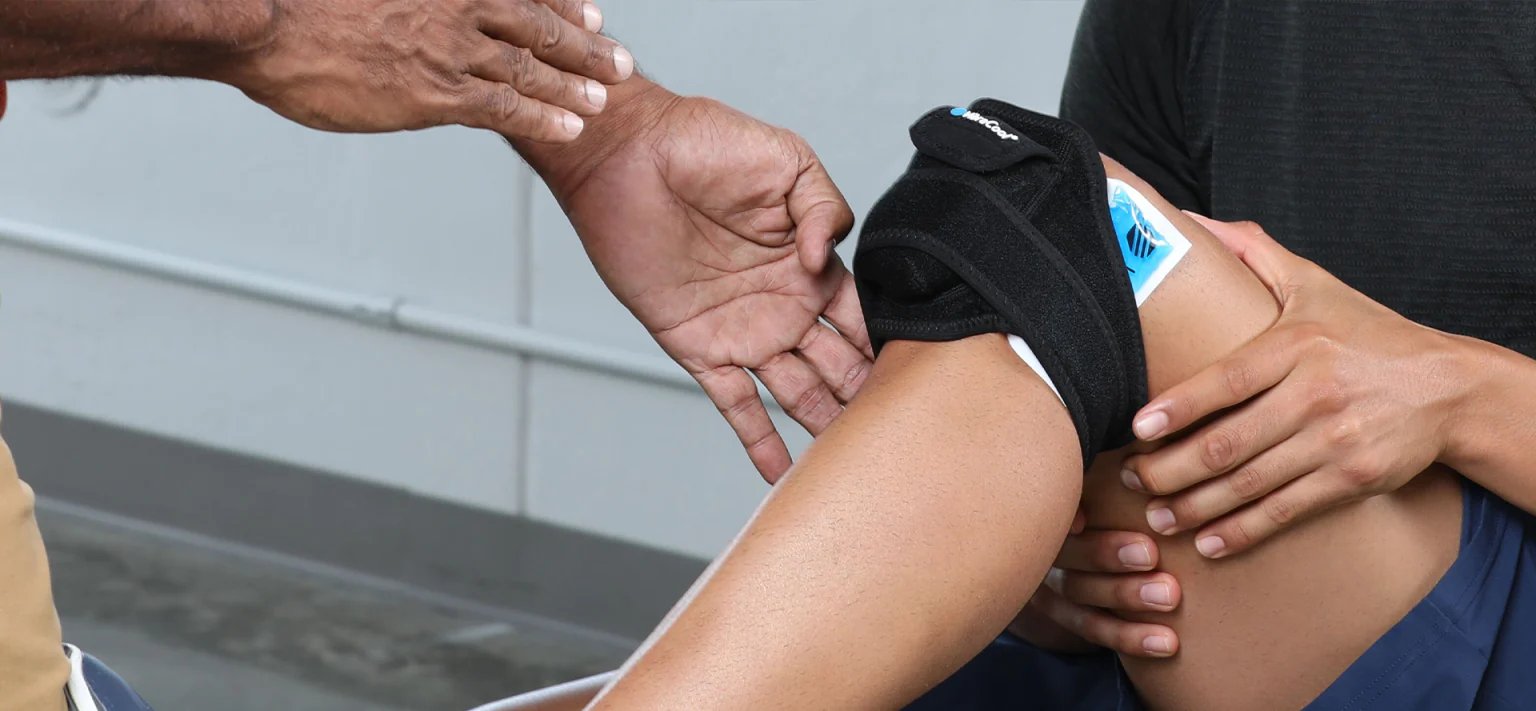
Pharmaceutical costs are pushing up the price of healthcare, while life expectancy is declining

The truth is, the pharmaceutical industry and our reimbursement system influenced not just the spread of opioids, but how our culture understands and treats pain.
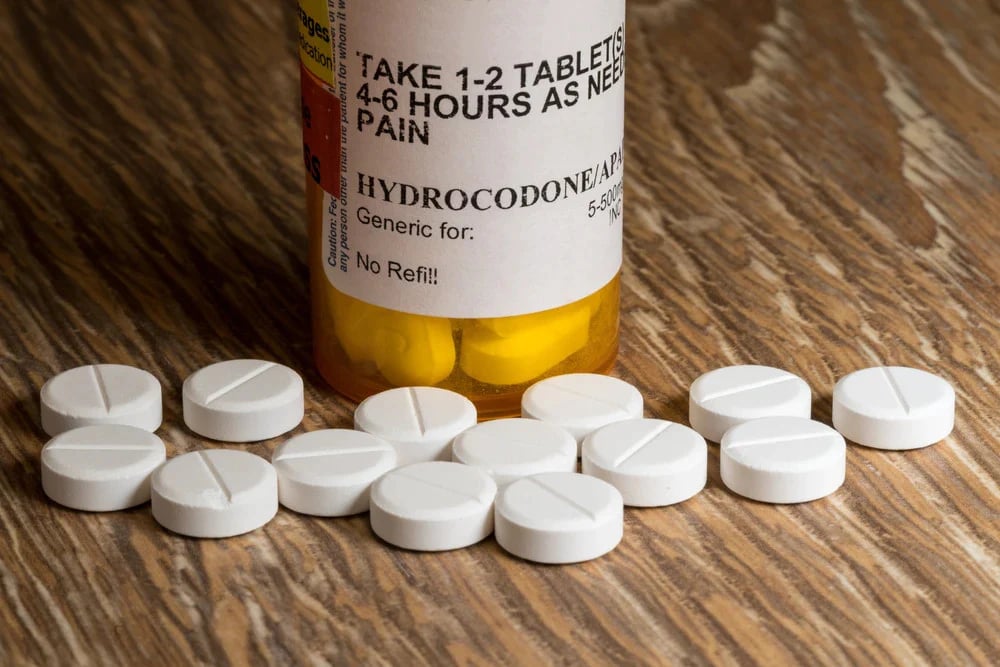
Unlike other drug crises, 80% of opioid addiction starts with a pill prescribed by a physician or dentist. 76 Billion pills, it seems, prescribed over 6 years, led to 100,000 deaths.
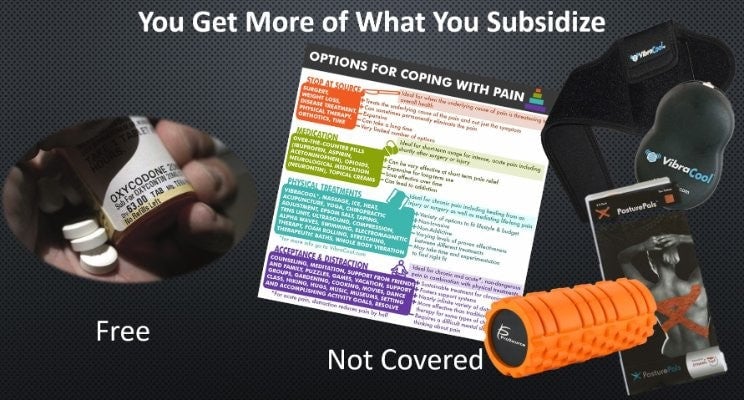
The truth is, the pharmaceutical industry and our reimbursement system influenced not just the spread of opioids, but how our culture understands and treats pain.
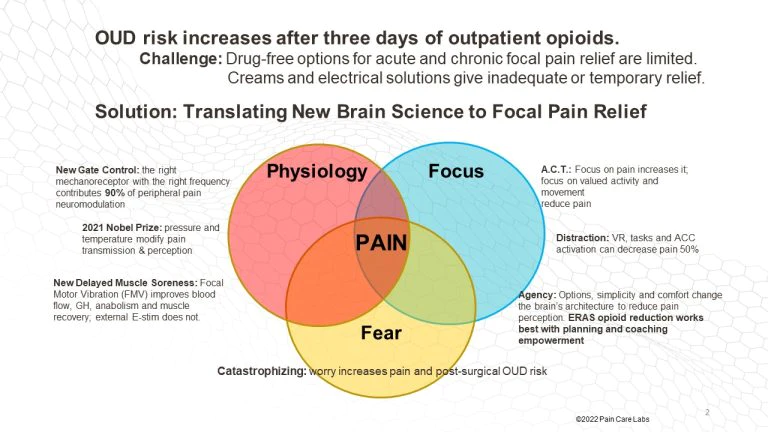
"It is easier to find men who will volunteer to die, than to find those who are willing to endure pain with patience."
Julius Caesar
Caesar’s words became reality as tens of thousands, housebound by the pandemic and unable to control their chronic pain, overdosed on opioids.
In the past two decades, we have realized how the pain and Perdue-pharma focused ’90s led us to an opioid use disorder epidemic.
At the heart of this problem is an essential misunderstanding of pain. To address suffering, we need to understand pain differently.
Get in touch with us.